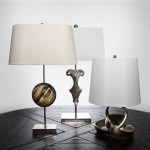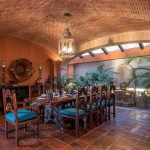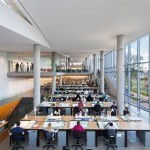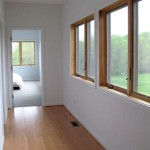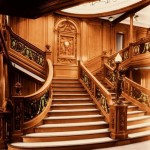Interior Partition Walls: Defining Spaces and Enhancing Functionality
Interior partition walls are essential elements in any building, playing a crucial role in defining spaces, enhancing functionality, and influencing the overall aesthetic appeal. These structures divide a large area into smaller, more manageable units, creating distinct rooms or zones within a building. They serve a multitude of purposes, from providing privacy and separating different functions to improving acoustics and enhancing the overall layout and design. This article will explore the key aspects of interior partition walls, examining their types, materials, advantages, and common applications.
Types of Interior Partition Walls
Interior partition walls come in various types, each with unique characteristics and applications. The most common types include:
- Drywall Walls: These are the most prevalent type, constructed using drywall panels attached to metal studs. They are affordable, versatile, and offer excellent sound insulation. Drywall walls can be easily modified and finished with paint, wallpaper, or other decorative materials.
- Wood Stud Walls: These walls utilize wood studs to provide structural support and are often used in traditional construction. They are strong and durable but can be more expensive than drywall walls. They also require more time for construction.
- Concrete Block Walls: Concrete block walls are robust and fire-resistant, making them suitable for high-traffic areas or applications where durability and fire safety are paramount. However, they are heavier and require more specialized labor.
- Glass Walls: Glass partition walls provide a modern and contemporary look, promoting openness and natural light. They come in various styles and thicknesses, offering different levels of privacy and sound insulation.
- Modular Walls: These prefabricated walls are easily assembled and disassembled, making them ideal for temporary spaces or projects requiring flexibility. They offer various materials and finishes to suit different needs.
Materials Used for Interior Partition Walls
The materials used for interior partition walls play a significant role in their performance, aesthetics, and cost. Some of the most commonly used materials include:
- Drywall: Drywall, also known as gypsum board, is a versatile material used for interior walls. It is lightweight, easy to install, and can be finished with various coatings and textures.
- Wood: Wood is a traditional material for building walls, offering warmth, durability, and natural beauty. It can be used in various forms, from studs to paneling.
- Concrete: Concrete is a robust and fire-resistant material often used for partition walls in commercial buildings. It provides excellent sound insulation and durability.
- Glass: Glass is a modern material for creating open and inviting spaces. It allows natural light to penetrate and creates a sense of spaciousness.
- Metal: Metal studs and framing are commonly used for drywall walls, providing strength and stability. Metal is also used for creating modern and industrial-style partition walls.
Advantages of Interior Partition Walls
Interior partition walls offer numerous advantages, making them essential for residential, commercial, and industrial spaces. Some of the key benefits include:
- Space Division: Partition walls effectively divide large spaces into smaller, more functional areas, increasing efficiency and organization.
- Privacy: They provide privacy and separate different areas, creating distinct spaces for work, relaxation, or personal activities.
- Sound Insulation: Well-designed partition walls can significantly reduce noise transmission between rooms, creating a more peaceful environment.
- Aesthetics: Partition walls can enhance the overall aesthetics of a space, adding visual interest and creating a sense of style and ambiance.
- Flexibility: Many types of partition walls offer flexibility, allowing for easy modification or removal to adapt to changing needs.
Interior partition walls are essential components in modern buildings, playing a crucial role in defining spaces, enhancing functionality, and improving the overall aesthetic appeal. Choosing the right type and materials for interior partition walls depends on the specific needs and requirements of the project. By carefully considering the various factors involved, architects, designers, and builders can create effective and aesthetically pleasing spaces that meet the diverse needs of their clients.

35 Most Beautiful And Creative Partition Wall Design Ideas Engineering Discoveries Modern Room Divider Walls

35 Most Beautiful And Creative Partition Wall Design Ideas Engineering Discoveries Living Room Modern Divider Designs

Making A Small Space Feel Big With Glass Partition Walls Giant Mirror

Partition Wall Interior Design Ideas Room Divider Modern Living

5 Amazing Partition Wall Types For Your Home Design Cafe

Partition Wall Ideas For Your Home Types And Cost Of Latest Designs

Decorative Metal Screen Interior Partition Wall Panel With Hairline Finish Color Plating China Room Divider Made In Com

Modern Living Room Partition Wall Design 2024 Top Divider Ideas For Home Interior

50 Latest Living Room Partition Wall Design 2024 Home Interior Ideas Wooden

Materials For Interior Partitions Difficult To Choose Easy Use Komandor Raine Official Website


